A healthy gut benefits your entire digestive system — and more
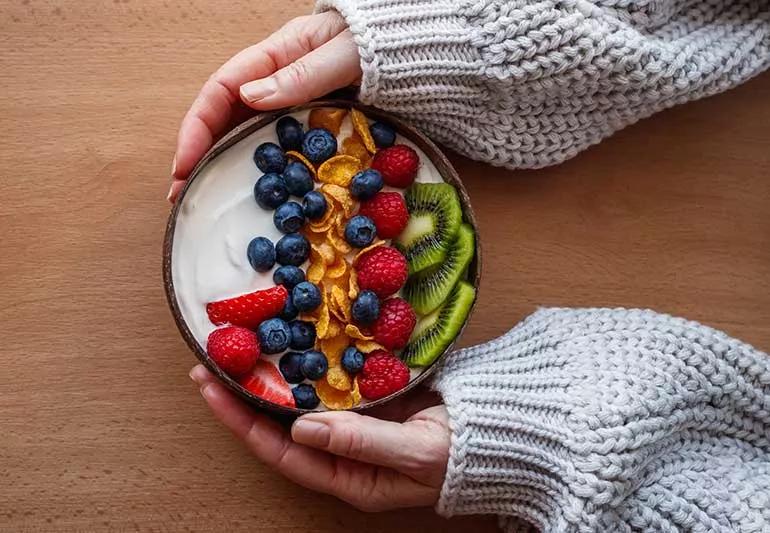
Image content: This image is available to view online.
View image online (https://assets.clevelandclinic.org/transform/f59037a7-4fdf-4c05-aaf4-943cf115eaa2/Gut-Health-1368991479-770x533-1_jpg)
Bowl of Greek yogurt with fruit.
You’ve probably heard the phrase, “You are what you eat.” And guess what? The old adage is pretty accurate when you consider that your gut health has a far-reaching impact on your overall physical health, immunity, risk for chronic conditions, mental health and more.
Advertisement
Cleveland Clinic is a non-profit academic medical center. Advertising on our site helps support our mission. We do not endorse non-Cleveland Clinic products or services. Policy
But how are those connections made between your gut and the rest of your body, and what does gut health actually mean? Let’s plunge right in.
Your gastrointestinal (GI) tract (also known as your digestive tract) is the largest part of your digestive system. Composed of a series of connected hollow organs that run from your mouth to your anus (think of it like a long tube), it includes your esophagus, stomach, small intestine and large intestine. When you eat food or drink liquid, your body breaks those items down into nutrients (carbohydrates, proteins, fats, vitamins, etc.) as they travel through your digestive tract.
Those nutrients are then used to fuel your body’s various biological cycles and processes. You have to consume nutrients in order to stay alive. And when those nutrients are broken down, the microorganisms living inside of your small and large intestines go to work to put those nutrients to use. So, your gut health refers to the health of your entire digestive system and the health of the microorganisms living in your digestive tract.
Need more info? Here’s a roundup of stories to get you started:
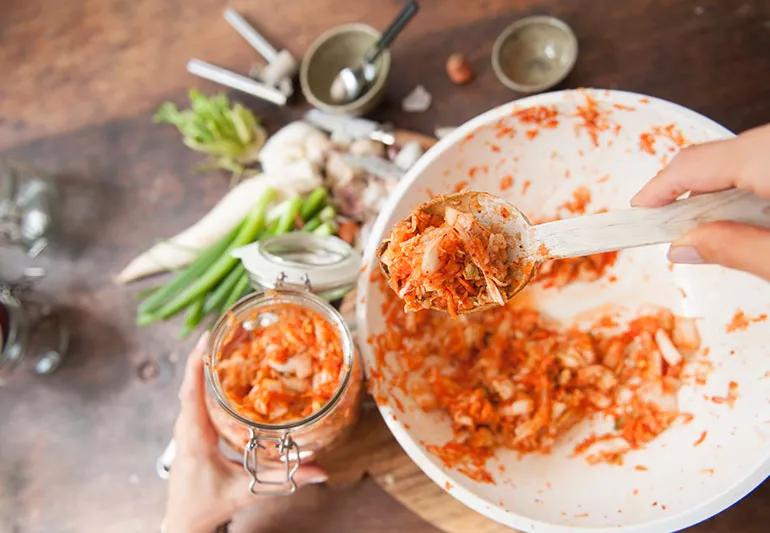
Image content: This image is available to view online.
View image online (https://assets.clevelandclinic.org/transform/6257a4ed-0a89-48e3-8ecf-d167909cc36e/GutMicrobiome-651985653-770x533-1_jpg)
According to digestive disease researcher and registered dietitian Gail Cresci, PhD, RD, and registered dietitian Kristin Kirkpatrick, RD, there are more than 100 trillion microbes inside of your body, with many of them living inside of your small and large intestines. This area, known as your gut microbiome, plays a role in your body’s ability to digest food, metabolize nutrients and reduce inflammation.
Advertisement
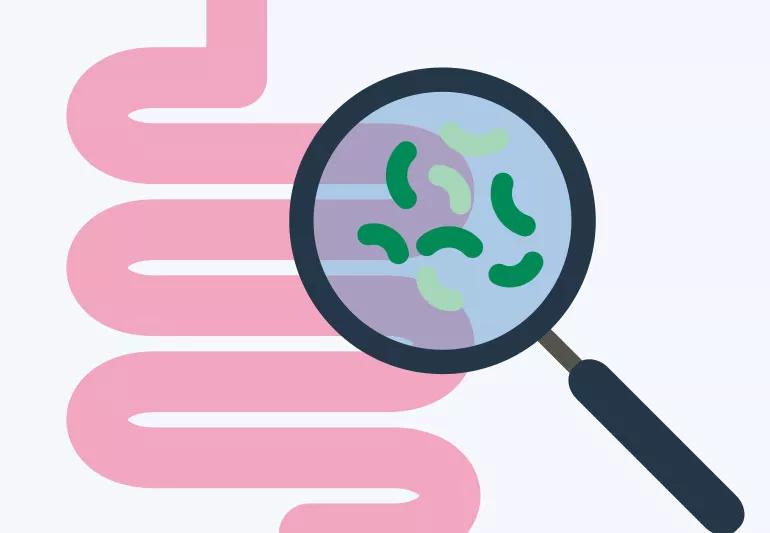
Image content: This image is available to view online.
View image online (https://assets.clevelandclinic.org/transform/acdd2f16-b156-4a92-8d9e-0f93a6deacb2/gutFacts-1077231480-770x553-1_jpg)
This story from gastroenterologist Bret Lashner, MD, sums up nine weird facts you may not have known about your gut, like how your stomach acid is strong enough to burn your skin and how you have detergents in your intestines. Who would’ve guessed?
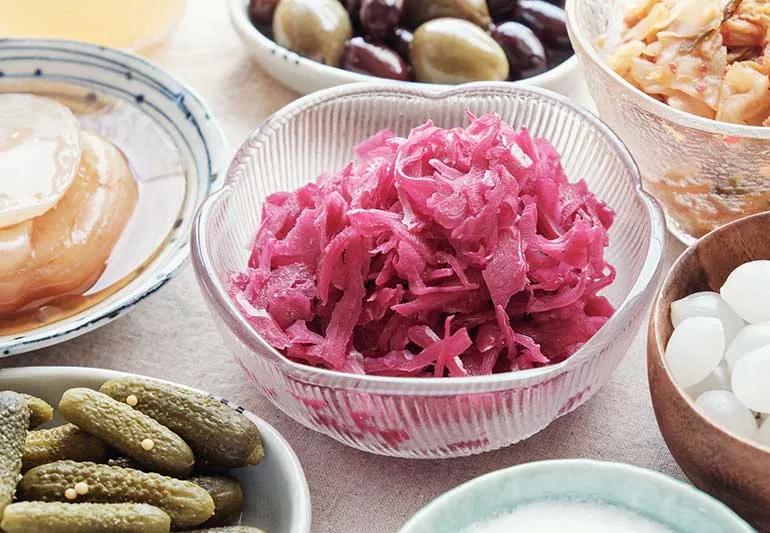
Image content: This image is available to view online.
View image online (https://assets.clevelandclinic.org/transform/84d5e320-7f06-4744-8e92-937f18dc80d5/Best-Probiotic-1001796854770x533-1_jpg)
Balance is key — especially when it comes to making sure you have enough good bacteria to counteract the bad bacteria in your gut. Probiotics are just that: They’re beneficial microbes that support the number of good bacteria you have so they can get the job done. You’ll find probiotics in foods and supplements, but you’ll also find specific probiotics that can help with specific conditions. Dr. Cresci explains how to choose the right probiotics for you.
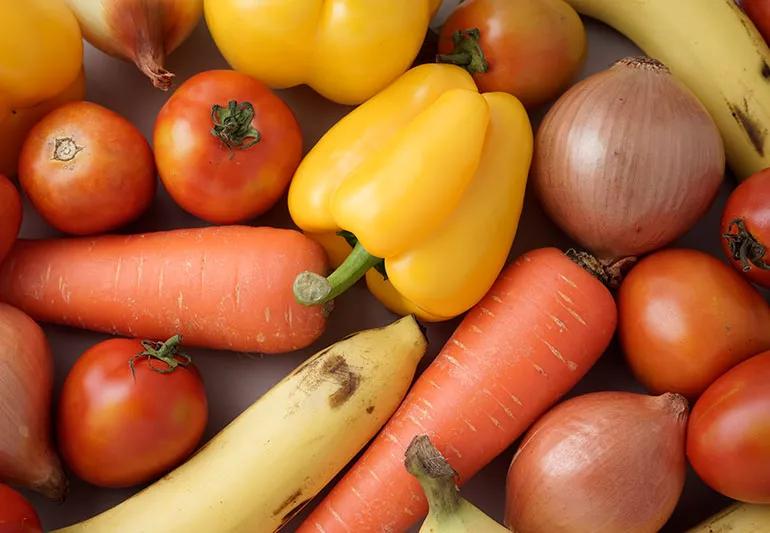
Image content: This image is available to view online.
View image online (https://assets.clevelandclinic.org/transform/2f719ceb-6199-4a41-80f4-fe67357caa5c/Prebiotics-1348974055-770x533-1_jpg)
Prebiotics are a whole other thing. If you think about probiotics as farm animals that produce a variety of products that work for you, then prebiotics are the foods and nutrients that keep your farm animals (in this case, good bacteria) healthy and strong. This primer on prebiotics breaks this explanation down further with the help of Dr. Cresci.
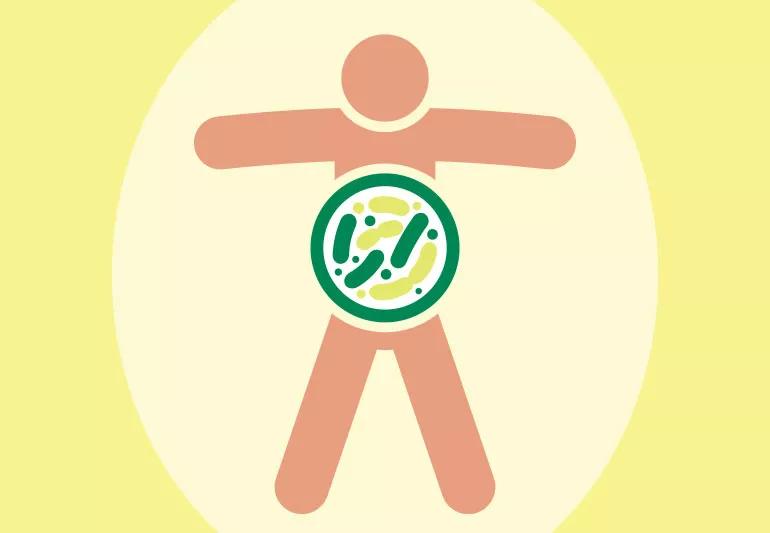
Image content: This image is available to view online.
View image online (https://assets.clevelandclinic.org/transform/39b97195-a294-48fa-ac69-71bd94f0a222/preProBiotics-1150919996-770x533-1_jpg)
Still confused about the difference between probiotics and prebiotics? Here’s a comparison of both from Dr. Cresci, and why they matter in different ways.
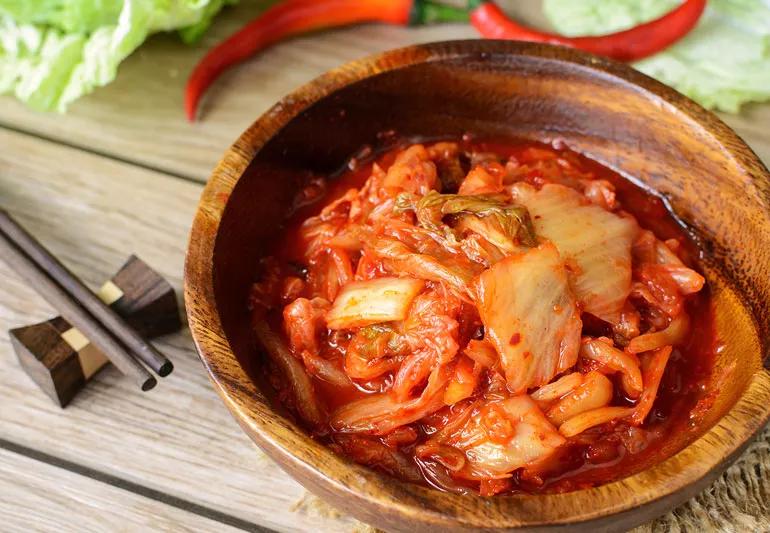
Image content: This image is available to view online.
View image online (https://assets.clevelandclinic.org/transform/d7c2da01-8f19-4bea-beaa-753b5d04ea1e/kimchi-513109340-770x533-1_jpg)
Fermented foods like kombucha, pickles, sauerkraut, kimchi and even yogurt can help strengthen your gut microbiome. Dr. Cresci gives us five ways fermented foods help keep your gut in check.
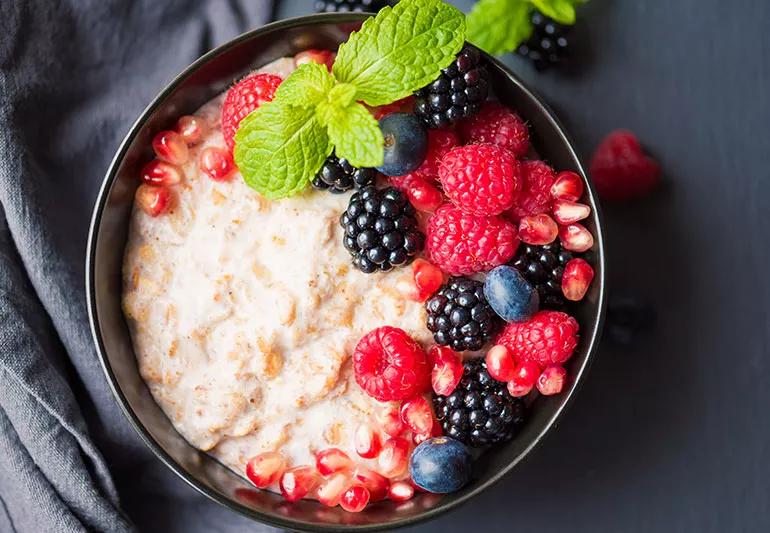
Image content: This image is available to view online.
View image online (https://assets.clevelandclinic.org/transform/54cd1245-d64a-41cc-bd1a-1519328bb97f/FoodsReducingBloating-908182132-770x533-1_jpg)
You can experience a build-up of gas as a byproduct of your gut microbiota breaking down all the nutrients you’ve consumed. This is why you may want to tread softly into probiotic and fiber territory, or you’ll end up feeling bloated and gassy. Luckily, Beth Czerwony, RD, has this list of foods that help soften your bloat.
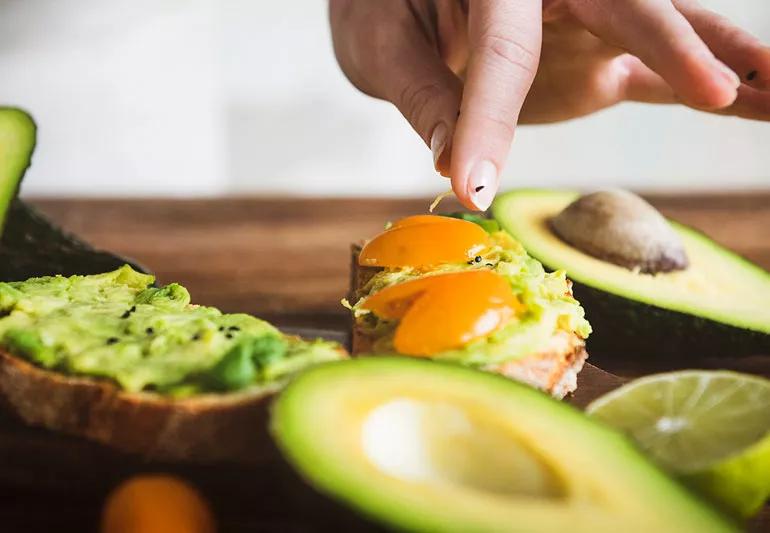
Image content: This image is available to view online.
View image online (https://assets.clevelandclinic.org/transform/fc1032fc-5799-48ef-bee3-9753c0d4b30d/avocadoToastMedDiet-1131365682_770x553_jpg)
We can’t stress this enough: The more stressed you are, the higher your chances of causing harm to your immune system and overall physical and mental health. Plus, your gut microbiome is responsible for 70% to 80% of your immune system. Registered dietitian nutritionist Courtney Barth, RDN, explains how eating these foods helps reduce inflammation and cortisol levels in your body, which all have a hand in stress, so your immune system can be maintained.
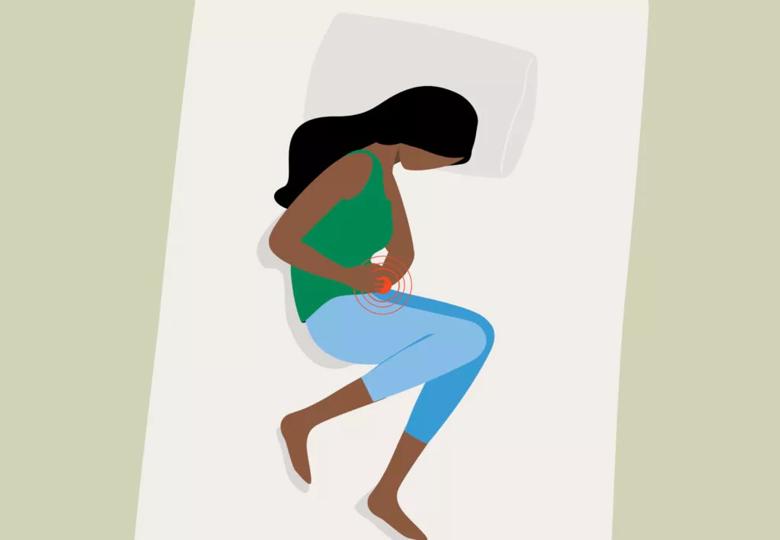
Image content: This image is available to view online.
View image online (https://assets.clevelandclinic.org/transform/8ae65b43-f3b6-4675-9fb5-46f28a846bdb/Constipation-1387762680-770x533-1-1024x709_jpg)
It’s important to keep things moving, especially when your food has a long way to go before it gets fully processed. But if you’re constipated, you could experience a backup that results in cramps or intense stomach pain. These home remedies from gastroenterologist Samita Garg, MD, can help with constipation by keeping your gut happy and making sure you stay regular.
Advertisement
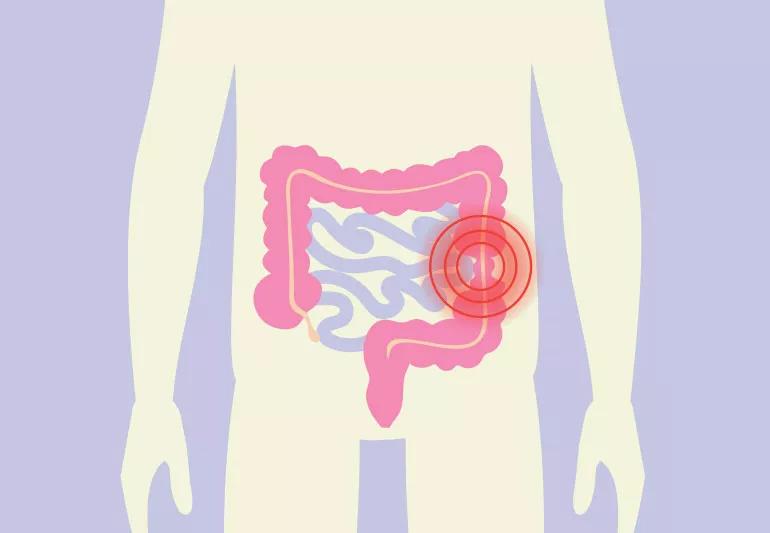
Image content: This image is available to view online.
View image online (https://assets.clevelandclinic.org/transform/8ee27e94-0e3c-4c8a-8fa1-181fa15937f3/IBS-965546890-770x533-1_jpg)
The function of your gut is vast, so of course, when something goes wrong, it can be hard to tell exactly what’s causing problems. If you’re having issues with your digestive system or experiencing any pain, you should see a healthcare provider for testing and treatment that’s specific to your case — but this story on digestion troubles from gastroenterologist Brian Baggott, MD, can help you parse out some details on exactly what might be causing you some discomfort.
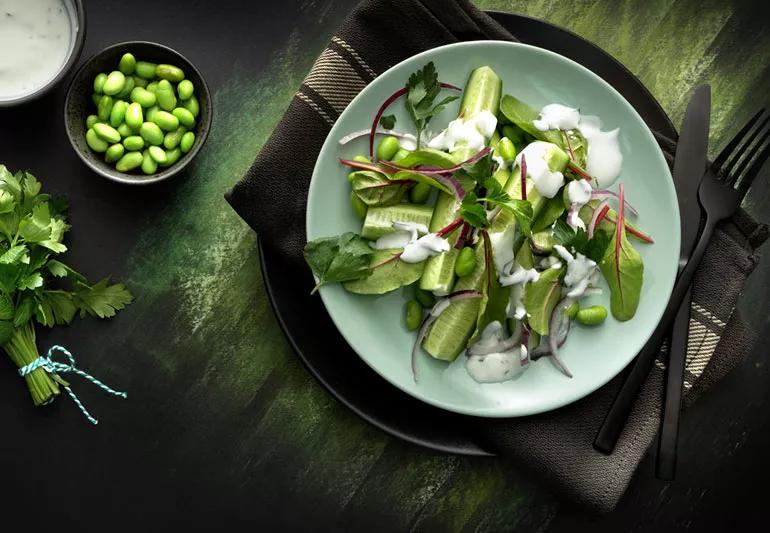
Image content: This image is available to view online.
View image online (https://assets.clevelandclinic.org/transform/437a566c-f78b-4082-82fc-47bbc36e38b7/digestiveHealthVeggies-664614998-770x533-1_jpg)
Understanding just how your gut microbiome works — and what helps it work better — can be incredibly overwhelming at first. But these small steps to improving your digestive tract from gastroenterologist Christine Lee, MD, can go a long way as you make an invested effort to have healthier eating habits.
Advertisement

Delivered every Tuesday!
Sign up for our Health Essentials emails for expert guidance on nutrition, fitness, sleep, skin care and more
Learn more about our editorial process.
Advertisement
Pain on your right side between your rib cage and hip bone warrants immediate treatment
A digestive disease expert explains
Understand all the causes + when to see your doctor
Understanding what a 'gallbladder attack' feels like
The supplement shouldn’t replace a healthy diet, but it can help you get in your fruits and veggies
Chronic inflammation from flare-ups can damage the lining of your intestinal wall, making your colon more vulnerable to cancer
Age, sex and genetics are just a few factors that can affect your risk of developing coronary heart disease
You don’t need a strenuous or expensive fitness routine to keep your digestive tract in shape
Type 2 diabetes isn’t inevitable with these dietary changes
Applying a hot or cold compress can help with pain
Pump up your iron intake with foods like tuna, tofu and turkey